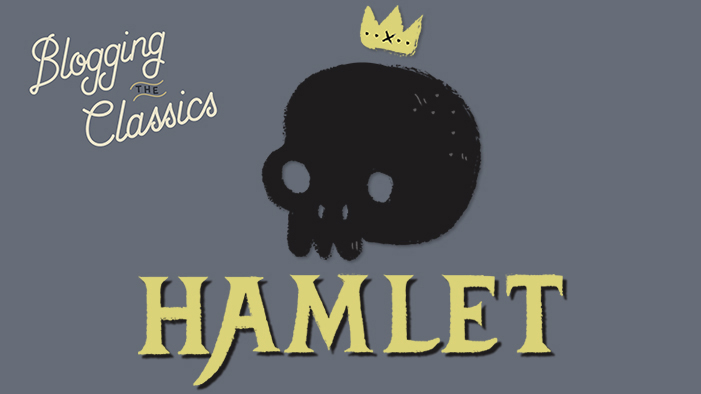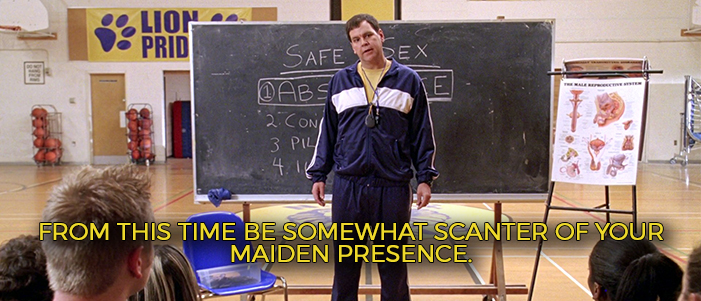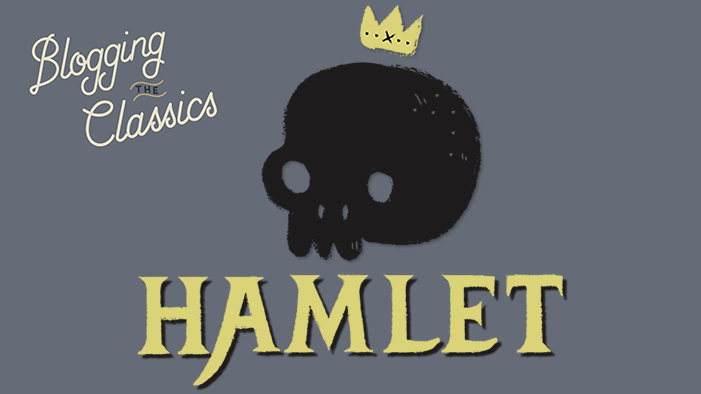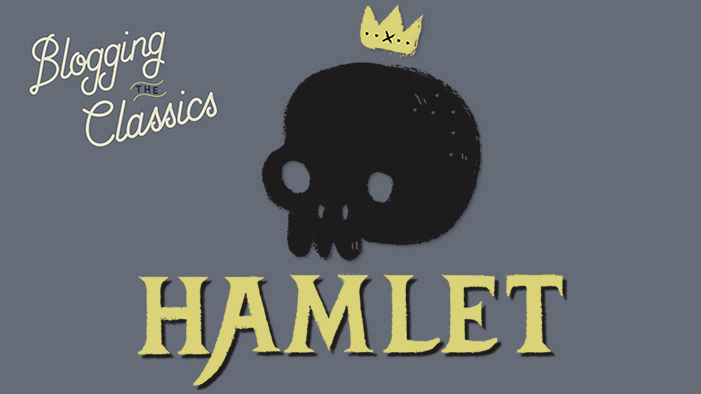Blogging Hamlet: Part 2

Previously on Blogging Hamlet, a ghost appeared! It may or may not be Hamlet’s dad. (It is.)
One of the best recurring themes in Shakespeare is that of inexplicable family weirdness. Look, we all have weird families. It’s the great universal equalizer. My family may not be of the “dad dies, mom marries the uncle, and then ghosts happen” variety of weird, but my aunt has a pet fish called Fishstick and my parents always order their pizza without any sauce, so I kind of get it.
That said, I think Ophelia’s family is even weirder than Hamlet’s. I know this is a strong position to take, given that Claudius’s marriage to Hamlet’s mother smacks of incest, but hear me out.
We first meet Ophelia in Act 1, Scene 3. She is
- Hamlet’s primary love interest (sorry, Horatio)
- The daughter of Polonius, who is the king’s advisor
- Probably marked for death
At the moment, she is saying goodbye to her brother Laertes. He’s returning to school in France. Laertes asks her to keep in touch, and then barely one sentence later he is telling her to protect her maidenhood from the insatiable onslaught of Hamlet’s manly wiles.
LAERTES: Don’t forget to write to me.
OPHELIA: Okay.
LAERTES: And watch out for that Hamlet guy. He’s in love with you, and that’s cute, but if you have sex with him everyone will hate you forever.
OPHELIA: Oh.
This is because Ophelia has the poor sense to be a woman in the Elizabethan era, meaning her lady virtue is like a delicate flower we might as well THROW RIGHT INTO THE SUN the second a man sees her naked. Laertes says a lot of things about “the danger of desire,” “[unmasking] her beauty to the moon,” and “the liquid dew of youth.” He’s like the Shakespearean version of the gym teacher from Mean Girls.
 Paramount Pictures
Paramount Pictures
He says that Hamlet is a prince, and therefore subject to the whims of his people. He cannot marry for love, only politics. Laertes then tells her not to give up her “chaste treasure” to someone who can’t make an honest woman out of her. Ophelia says Laertes should hold himself to the same standard.
OPHELIA: This is good advice, I guess, but make sure you follow it, too.
LAERTES: Please be serious, Ophelia. I am a dude. Lose my virtue? How would that even happen?
Enter Polonius, who is like the archetypical sitcom dad. He bids farewell to his son and throws in a few pearls of wisdom just for good measure, like
- Make friends
- Be yourself
- Talk less
- Smile more
- Spend all of your money on clothes so no one will think you are homeless
Laertes departs for France, and Ophelia tells her father about Laertes’ warning. Polonius doubles down on this. He tells her Hamlet is a man and therefore a sex monster, and that his “vows” are “unholy suits.” He also likens being sexually aroused to being on fire. He’s like the gym teacher 2.0.
 Paramount Pictures
Paramount Pictures
Act 1, Scene 4 opens with Hamlet and Horatio standing guard outside the castle with Marcellus. They’re waiting for the ghost of Hamlet’s father to appear and tell them things. In the meantime, Hamlet and Horatio decide to chat about the weather.
HAMLET: The air bites shrewdly. It is very cold.*
HORATIO: It is a nipping and an eager air.**
HAMLET: It is so brisk, wintry, and just flat-out frigid that it floods my veins with ice, and the only good thing that could possibly come of this situation would be if you were to set me on actual, literal FIRE.***
HORATIO: Well.
* actual quote
** another actual quote
*** just let me have this
Marcellus does not chime in, even though presumably he too knows synonyms for “chilly.” Horatio says it is nearly midnight, which as we all know is Ghost Time. In the distance, there is the sound of cannon fire. Far from meaning that a tribute has just died in the arena, this simply indicates that the king is off having some sexy drunken party fun. Hamlet, who hates fun, says this particular Danish custom makes their country look weak and foolish. He soliloquizes for a hot second about how a “dram of evil” can sully a man’s good reputation, but I’m sure that’s a throwaway remark of no real consequence.
All of a sudden, a wild ghost appears! Hamlet shouts a bunch of stuff in the ghost’s general direction, namely
Be thy intents wicked or charitable,
Thou comest in such a questionable shape that I will speak to thee.
which is actually how most people used to address me on Tinder. The ghost refuses to speak in front of Horatio and Marcellus. Instead, he beckons Hamlet to follow him. This is like a horror movie where all the lights in the house go out and the boyfriend says, “No problem, I’ll just find the circuit breaker,” because apparently everyone but me knows what a circuit breaker is, and the girl says, “I don’t know, maybe we should stick together,” and the boyfriend says, “Don’t be ridiculous, I’ll be back in five minutes. What could go wrong?”
In short, I don’t blame Horatio for telling Hamlet not to go. Hamlet says if he doesn’t, they won’t know if it’s a good ghost or a bad ghost—a “spirit of health” or a “goblin damned.” Besides, he doesn’t care if he lives or dies. Horatio urges him to calm down, at which point Hamlet decides the logical next step in this conversation is to say “IF YOU DON’T LET ME GO I’LL STAB YOU.” Hard to argue with that.
The scene ends with Hamlet running off to chat with Schrödinger’s ghost. Marcellus says, “Something is rotten in the state of Denmark, and it’s Hamlet’s teenage angst.” I might have spiced that up a little, but definitely use it in your essay.
THOUGHTS
- This is the first time Hamlet’s suggested—however obliquely—that he would have made a better king than Claudius. Previously, his hatred has been purely of the “you’re not my real father” variety. But the king’s drunken revelry juxtaposed with Hamlet’s disdain for the custom indicates that Hamlet, not Claudius, has Denmark’s best interests at heart. Also…
- Motif alert! Denmark may look okay on the outside, but on the inside it’s gross and corrupt. I’m sure this is not important and will definitely never come up again.
Check out the rest of our Blogging the Classics series, or read the Hamlet SparkNote!















